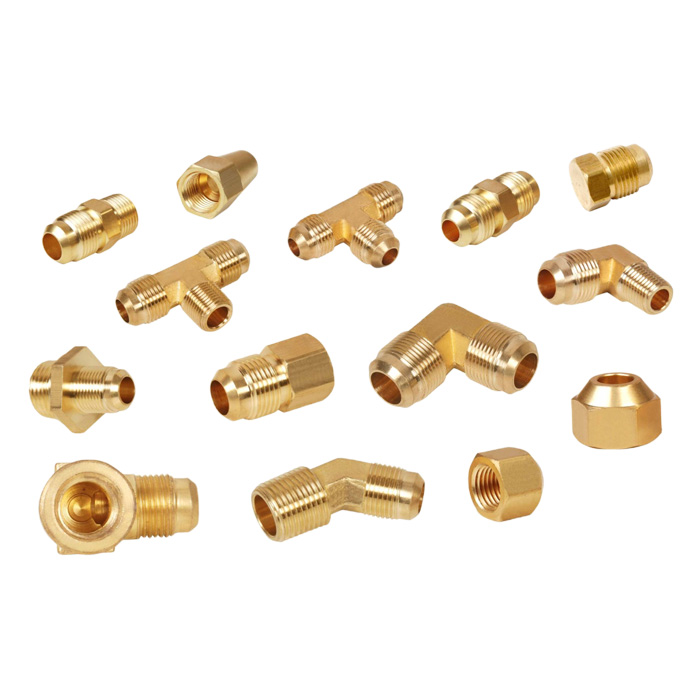
With our leading technology likewise as our spirit of innovation,mutual cooperation, benefits and development, we're going to build a prosperous future together with your esteemed enterprise for Trending Products China Youlin® Brass Machined Parts, To improved expand market, we sincerely invite ambitious individuals and providers to hitch as an agent.
Trending Products China Brass Machined Parts, Strict quality control is executed in each link of the whole production process.We sincerely hope to establish the friendly and mutual-beneficial cooperation with you. Based on high quality solutions and perfect pre-sales /after-sales service is our idea, some clients had cooperated with us for more than 5 years.
1.Why Choose Youlin’ Brass Machined Parts
 →Supply reliability - Whether it takes a stocking plan or consignment program, Youlin delivers to suit your schedule. Backup inventories can be created to respond to fluctuations in production demand.
→Supply reliability - Whether it takes a stocking plan or consignment program, Youlin delivers to suit your schedule. Backup inventories can be created to respond to fluctuations in production demand.
→Cost savings - Youlin can perform several operations simultaneously by utilizing equipment options in multi-spindle machining and CNC turning, producing precision Youlin® brass machined parts at a fraction of the traditional cost.
→Manufacturability help - Professional machinists, assemblers, and quality control specialists will ensure your CNC milling brass parts are made to your exact specifications to improve material savings and faster turnaround times.
→OEM service - Do precision brass machined parts manufacturing according to your drawings or samples, all precision CNC brass machined parts are subject to strict quality inspection, can ensure your receive the products as you expected
2.Properties of Brass
Formed primarily of copper and zinc, brass has many desirable properties that make it an ideal material for manufacturing a variety of parts and components. These properties include:
 ◆Easily machinable (at zinc levels < 40%)
◆Easily machinable (at zinc levels < 40%)
◆High ductility and malleability
◆Resistance to corrosion, wear, temperature variation, oxidation, and salt
◆Good conductor of heat and electricity
◆Bright, golden appearance
The machinability of brass depends on its zinc content, meaning the percentage of zinc in brass alloys must not exceed 40% in order to undergo casting, melting, punching, or other machining methods. The addition of other alloying agents like lead, manganese, aluminum, arsenic, or tin help to differentiate brass alloys while improving upon the metal’s base properties. Selecting the appropriate brass grade is a critical step in properly addressing the requirements of a specific application.
3.Features Of Brass Machined Parts
Brass is the best choice for many applications as it is free machining and cost effective. Youlin® Brass machined parts offer the following advantages:
 →Long shelf life
→Long shelf life
→Strong abrasion and corrosion resistance
→Good malleability
→Flexible and rustproof
→Easy to shape
→Excellent tensile strength, rustproof
→Bright, golden appearance
4.Industries Application for Brass Machined Parts
Brass machining is used in a wide variety of applications and industries, including medical, electrical, plumbing, and even consumer goods. Companies prefer small brass turned parts and components because it's one of the easiest materials to machine, it's cost efficient, and extremely durable. Machined brass fittings are often used in electronic hardware because of its low strength and weight properties. Additional brass machining applications include engineering, plumbing, and steam work because machined brass fittings have a low friction coefficient and high corrosion resistant properties.

5. FAQ
Q: Why is brass good for machining?
A: Brass has a high tensile strength and is easy to machine. This makes it ideal for intricate and low-friction parts, like locks, gears, valves and bearings. Its high corrosion resistance is good for outdoor use, plumbing components and naval/marine applications.
Q: What is added to brass to improve the machining of parts made by brass?
A: The most common alloying element in high amounts is zinc. Depending on which elements are added to the copper the name of the alloy will also change. The most common copper alloys are brass, bronze, copper-nickel, leaded copper, nickel-silver and gunmetal among many others.
Q: Does brass get tarnished?
A: Brass, which is a combination of copper and zinc, is highly prized for its durability, corrosion-resistance, and beauty. Over time, however, its beauty can become blackened with tarnish.